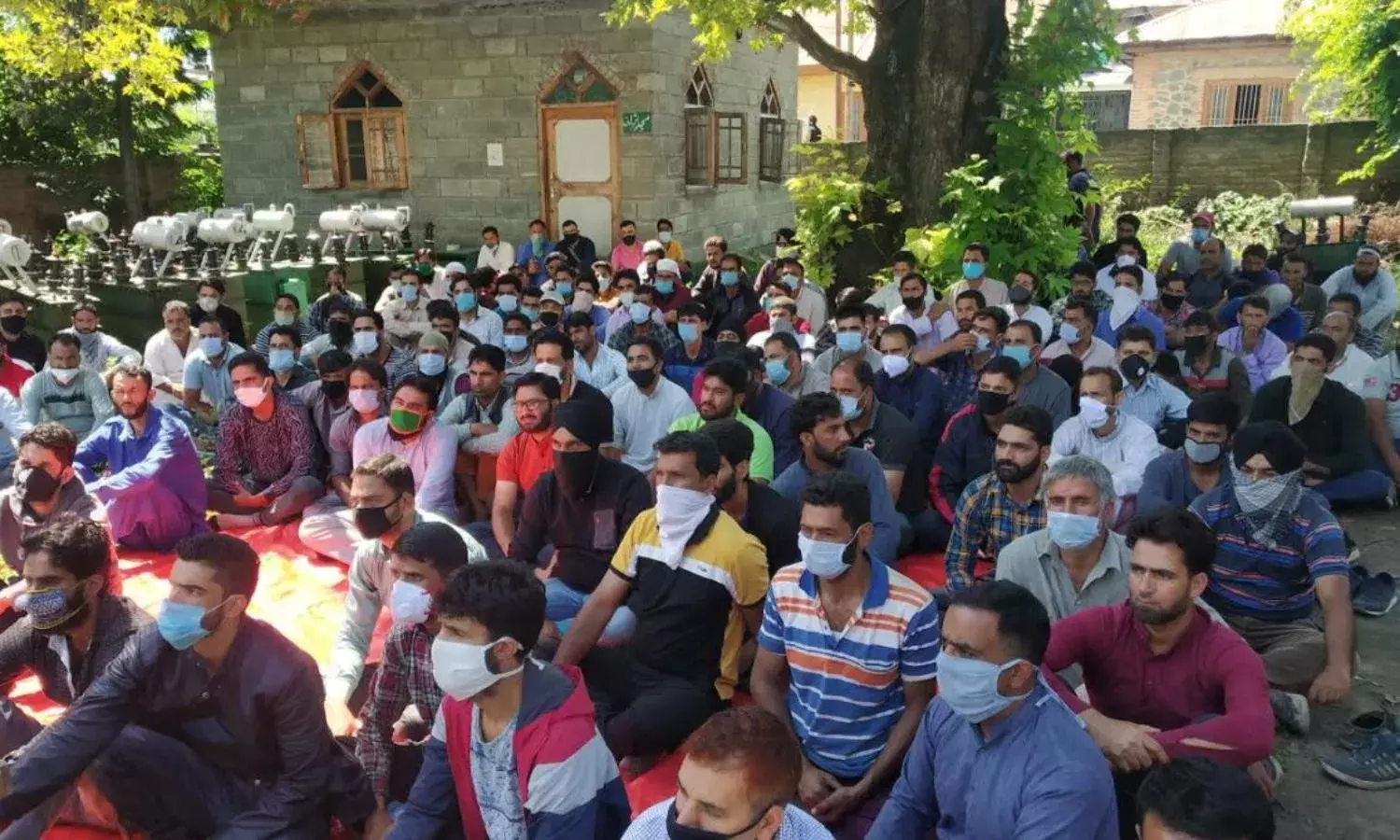Low Pay, Dangerous Conditions: Kashmir Electrical Workers Protest in Awantipora
A number of workers electrocuted in the line of duty

AWANTIPORA, KASHMIR: In the hope that their jobs will be regularised one day, a large number of daily-wage workers in the Kashmir Power Development Department continue to work tirelessly irrespective of the situation.
These workers play an important role in the department’s work throughout the Valley, always on the frontlines. Over decades many have lost their lives and a large number of them have been seriously injured while working to repair electricity transmission lines.
Organised under the banner of PDL/TDL unions, in the Awantipora area of Kashmir a number of workers recently held a protest demonstration outside the electricity division building. They chanted slogans for hours, demanding ‘justice’ in their favour.
A group of PDL/TDL workers told The Citizen that they have been protesting for years, but “only fake assurances are given” to them from time to time, leaving them completely dismayed.
They said they have not been regularised by the Power Development Department “even after fulfilling our responsibilities with dedication, dignity, and honour for the last two decades”.
Requesting anonymity one worker said, “A number of PDL/TDL workers have been electrocuted in the line of duty, and many [are now people with disabilities].” He said that such workplace accidents continue to happen but the government has taken no step to rehabilitate them.
Another PDD worker, Firdous Ahmad Lone, who was part of the protest rally in Awantipora, said he has worked in the department since 2005.
“I am among the daily wagers who were appointed in the beginning. We work day and night to repair the lines in far-off areas of Tral. All my colleagues were regularised but I am still working as a daily wager with 6,750 as my monthly salary.”
Lone added that he faces a tough time working in the winters, as the area he works in receives 3–5 feet of snowfall every year.
According to Mehraj ud Din, division president of the PDL/TDL union, a recent “Departmental Promotion Committee meeting was conveyed in January 2019, but orders are yet to be issued, which is a matter of grave concern.”
He said that promotion orders issuing from these annual Departmental Promotion Committee meetings are issued from time to time. “However, the orders of the 2019 meeting are yet to be issued, as the files are pending in offices and are not being taken into consideration.”
Mehraj ud Din further said that the pay of daily-wage workers who had been injured in the line of duty is pending, and demanded its immediate release.
A statement issued by the All J&K PDL/TDL Electrical Employees Union mentions that “PDL/TDL staff are mainly involved in restoration/repairs and are prone to become prey to electric accidents. As such special and comprehensive training programmes should be conducted.”
These it says “may help in reducing the frequency of electric accidents. Besides, provision for the issuance of tools should also be made available.”
Why are these workers being forced to work without regular pay, proper training or tools, or workplace accident insurance or compensation?
Aijaz Ahmad, chief engineer at the Kashmir PDD said that regularisation of PDL/TDL employees was “already under process”.
Asked about the release of pending wages for employees injured in the course of their work, he said they had already taken up the matter with the finance and administrative departments.
As for training programmes, he said that hands-on training programmes are being held by the department.
Mushtaq Ahmad, a PDD worker from Satoora village of Aripal tehsil in Pulwama shared his ordeal of working in the department since 2003, saying he did his work even in hard times but was never considered for a regularised job.
“I have been working for 17 years as a daily wager in the PDD earning only 6,750 rupees per month. I have been waiting for regularisation for more than a decade but nothing is being done.” Ahmad said he is the family’s lone bread earner and has many responsibilities on shoulders.
“I have walnut trees in my home. The money that I get by selling the walnuts somehow satisfies my family’s needs. Otherwise 6,750 rupees are not enough to meet our needs.”



